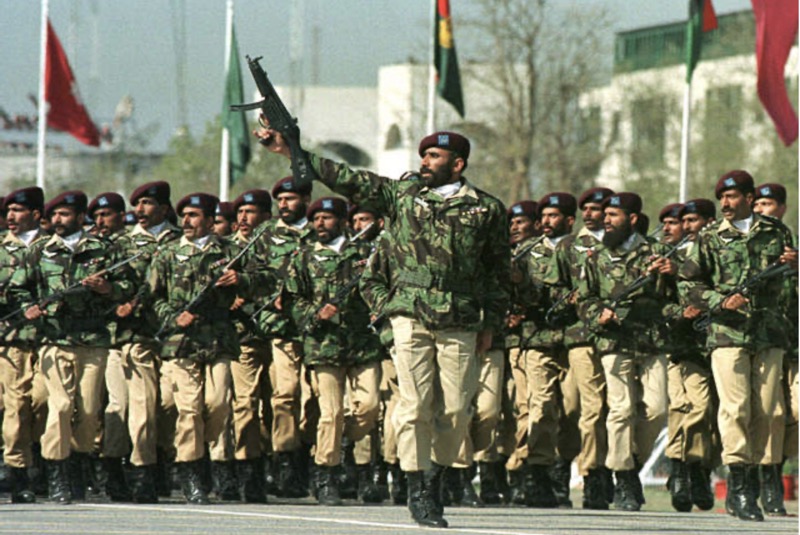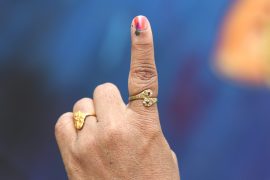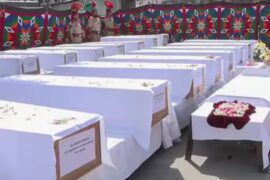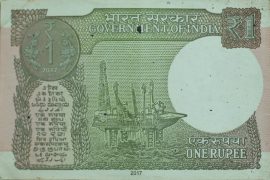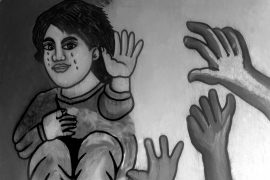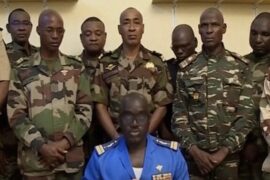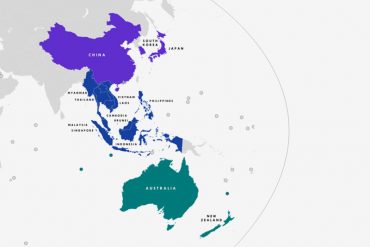Pakistan’s former military chief General Qamar Javed Bajwa declared at the end of his tenure the military would no longer meddle in politics.
However, the recent arrest of former Prime Minister Imran Khan– once seen as the “army’s blue-eyed boy” – and the army’s intention to prosecute civilian protesters under military laws proves the men in uniform are still very much in politics.
The recent turmoil in Pakistan also serves as a poignant reminder of the considerable power wielded by the military.
Amid the ever-changing political landscape, the only permanent force is the military establishment, while the political parties only coexist to share power with it.
Khan, whose success in the 2018 general elections was engineered by the military itself before the two drifted apart, has more than 100 cases registered against him now. These cases range from corruption and sedition to terrorism and even blasphemy, which is punishable by death.
His arrest was followed by days of violent anti-army protests across the country. Protesters set fire to police vehicles, damaged public property and mobs stormed into the compounds of army commanders in Lahore and Rawalpindi.
However, days after the military’s intention of using army laws on civilians became public, events changed course rapidly. Peaceful rallies expressing solidarity with the army took the centre stage.
How did a military of roughly 140,000 men at the time of partition of India in 1947 become the world’s seventh most powerful army?
An Army With A State
Since its creation in 1947, Pakistan has been under military dictatorship spanning a total of 34 years. When not directly in power, the military elite have discreetly engaged in hybrid regimes, exerting influence on civilian governments from behind the scenes.
The British colonial legacy has played a vital role in shaping Pakistan’s military today. British generals continued to head the Pakistan’s military until 1951, when the authority was transferred to General Ayub Khan. Just seven years later, Ayub became Pakistan’s second president through a military coup.
This foundation led to the establishment in 1948 of the spy agency Inter Services Intelligence. It gained remarkable influence in the 1980s, when the US covertly waged a war in Afghanistan using Pakistan as a proxy against the declining Soviet Union.
This period also saw the execution of an elected prime minister, Zulfikar Ali Bhutto.
Then came the era of religious extremism under General Zia-ul-Haq. This consolidated Pakistan’s obsession with the “strategic depth” for interference in Afghanistan.
In later years, Pakistan saw the assassination of an elected prime minister, Benazir Bhutto under the rule of General Pervez Musharraf.
This was the time of enforced disappearances of civilian dissidents. Pakistan also became a safe haven for Al Qaeda leader Osama Bin Laden while receiving funds from the US as a frontline ally in the war against terrorism.
Pakistan’s army received substantial financial backing from the US during the Cold War. This bolstered its might domestically while allowing it to undertake adventures abroad for which it was unaccountable.
Traces of the Pakistani military’s involvement could also be seen in the Arab conflicts and the Bangladesh “rape camps”.
Military Immune to hyperinflation in Pakistan
Pakistan is on the verge of an economic meltdown, weighed down by harsh pay-back terms from international lenders. With only A$5.2 billion worth of state reserves and a debt of over A$13.5 billion owed to the International Monetary Fund, the army nonetheless received an increased payment of A$11.27 billion in last year’s budget.
Between 2011 and 2015 alone, the army’s assets grew by 78%. By 2016, the armed forces in Pakistan ran over 50 commercial entities, including public sector organisations and real estate ventures worth A$30 billion. Today, their commercial assets are worth over A$39.8 billion.
Top military officers, including former army chief General Qamar Jawed Bajwa and army spokesman, General Asim Saleem Bajwa, have been revealed to have experienced significant financial gains within a relatively short time. Bajwa’s immediate family amassed substantial wealth, transforming into billionaires within six years.
General Asim Saleem Bajwa and his brother established a business empire that included 133 restaurants across four countries, operating under the Papa John’s pizza franchise. An investigation was also launched into real estate corruption by the brothers of former army chief Ashfaq Parvez Kayani, who for many years was the most powerful figure in the country.
The Pandora Papers exposed a long list of Pakistan’s former military officers who had accumulated immense wealth through tax evasions and corruption.
Over time, the military’s economic interests have gained prominence. This includes military-owned businesses, significant onshore and offshore land and property holdings, influence over defence contracts, as well as alleged involvement in ventures linked to the China-Pakistan Economic Corridor (CPEC) projects.
The military’s influence in Pakistan extends beyond politics and the economy. To control information dissemination, the military employs a combination of traditional and social media censorship. It also utilises vaguely worded draconian laws.
These laws effectively criminalise any form of “ridicule” directed at the army, carrying severe penalties such as long prison sentences and hefty fines. Slain journalist Arshad Sharif was charged with “sedition” under the same laws for allegedly spreading hate against the military and disrespecting state institutions.
As a nuclear state, Pakistan’s military is much like Voltaire’s description of Frederick II of Prussia: it is a state within itself, benefiting from its sheer size, a great deal of money, and an advantageous geopolitical positioning.
The military’s rise to power in Pakistan is linked to cultivating a collective ethos that portrays politics as inherently corrupt, while positioning itself as the sole bastion of honesty, discipline and nationalism.
It is because of this approach that despite corruption within the military, it has successfully distanced itself from the prevalent political culture, which is characterised by kinship ties, factionalism, patronage networks, and most importantly, corruption.
This story was first published in The Conversation.
-30-
Copyright©Madras Courier, All Rights Reserved. You may share using our article tools. Please don't cut articles from madrascourier.com and redistribute by email, post to the web, mobile phone or social media.Please send in your feed back and comments to [email protected]

